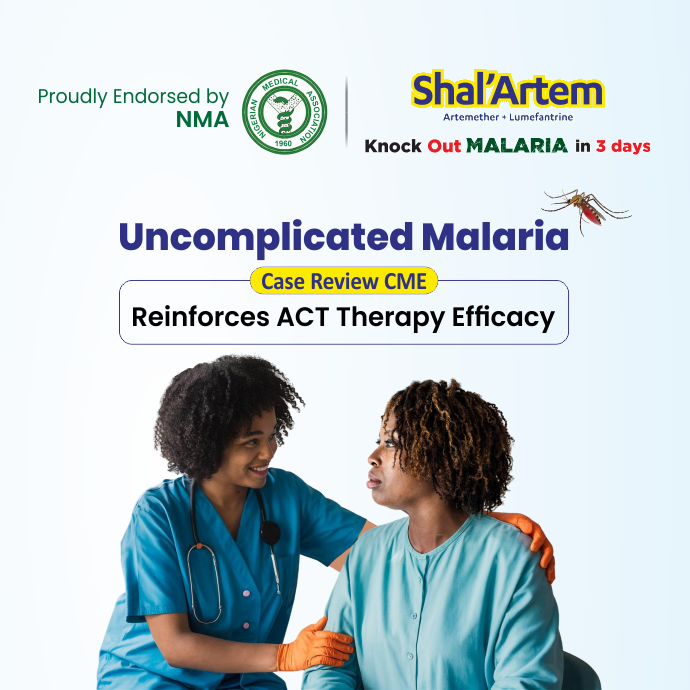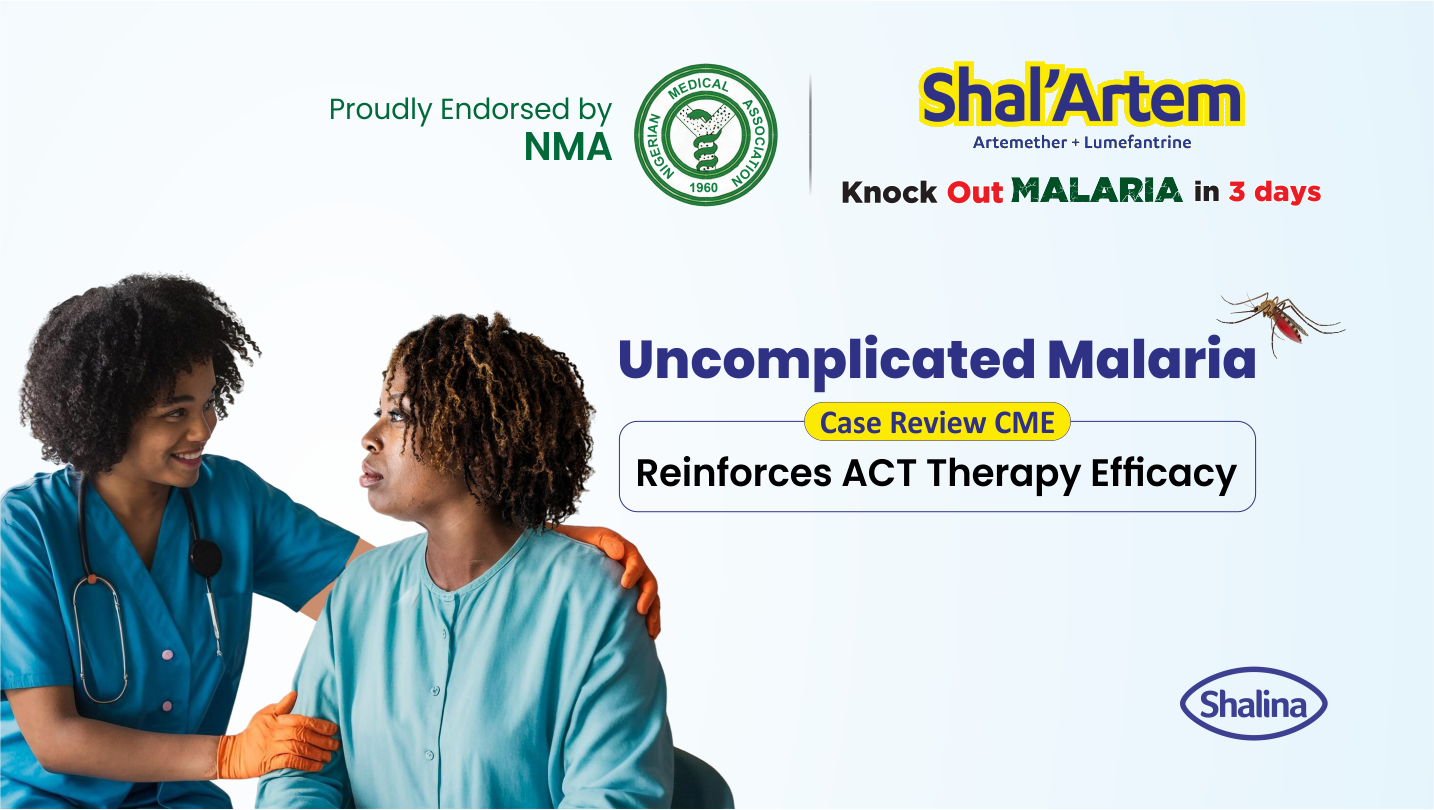Malaria remains a major public health challenge in Sub-Saharan Africa. Children under five and pregnant women are particularly vulnerable. Despite efforts to control the disease, limited healthcare access, poverty, and drug resistance continue to hinder progress. However, artemisinin-based combination therapies (ACTs), insecticide-treated nets, and other preventive strategies have significantly reduced morbidity and mortality in recent years.
This case review CME details the clinical management of a 45-year-old woman who presented with fever, nausea, headache, dizziness, and diarrhea after returning from a trip. Physical and lab examinations indicated uncomplicated Plasmodium falciparum malaria, confirmed by a blood smear.
The patient was treated with a 3-day course of artemether-lumefantrine, a WHO-recommended ACT (Artemisinin-based Combination Therapy) known for its fast-acting and long-lasting effects. This treatment, backed by clinical studies demonstrating over 95% cure rates across various populations in Africa, Asia, and Europe, led to full recovery within 10 days. This case reinforces the efficacy and safety of artemether-lumefantrine in treating uncomplicated malaria, especially in high-burden regions.

